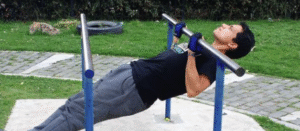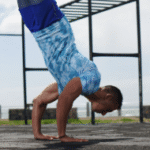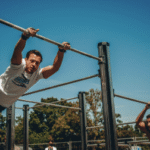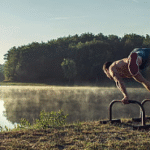Background Checks & Certifications: Hiring a Safe Calisthenics
Okay, let’s discuss in detail the role of background checks and certifications when hiring a private calisthenics trainer in the USA, focusing on how these elements contribute to ensuring a safe and qualified coaching experience. This information is current as of Tuesday, May 6, 2025.
Introduction
Hiring a private calisthenics trainer is an investment in your health and skill development. Ensuring the trainer you choose is not only knowledgeable but also safe and trustworthy is paramount. While “calisthenics coach” isn’t a formally regulated title with mandatory background checks like some professions, understanding the role of certifications and available methods for assessing trustworthiness is crucial for making a safe hiring decision.
Understanding Background Checks for Independent Trainers
When hiring an independent personal trainer or calisthenics coach directly (as opposed to through a large gym or organization), it is important to know that formal criminal background checks are generally not standard practice performed by the client. Individuals typically lack the legal framework and resources to easily conduct official, comprehensive background screenings on another private individual. Background checks are more commonly required by gyms or organizations when they hire trainers as employees, particularly if those trainers will work with children or other vulnerable populations.
Alternative Ways to Assess Trustworthiness and Character
Since formal background checks are often impractical for individual clients, you need to rely on other methods to gauge a trainer’s reliability and professionalism:
First, research their online reputation thoroughly. Search the trainer’s full name and business name online. Look beyond their website to review platforms like Google, Yelp, Facebook, and specialized trainer directories. Read reviews carefully, looking for comments related to professionalism, reliability, safety practices, and overall client experience. Consistent negative feedback or red flags related to conduct should be taken seriously.
Second, verify their professionalism during initial interactions. Are they responsive to inquiries? Do they communicate clearly and respectfully? Do they have a professional website or social media presence? Do they present clear contracts or service agreements outlining policies and expectations?
Third, ask for and check references. Politely request contact information for one or two past or current clients (with their prior permission) whom you can briefly speak with about their experience regarding the trainer’s reliability, professionalism, and coaching style.
Fourth, consider hiring through reputable platforms or gyms if possible. While not foolproof, established gyms or some online trainer platforms may conduct their own vetting processes, potentially including background checks. Inquire about their specific screening policies.
Fifth, trust your intuition. During consultations or trial sessions, pay attention to your gut feeling. If something feels off, unprofessional, or unsafe, it is okay to choose a different trainer.
Sixth, choose your training location wisely initially. You might feel more comfortable starting sessions in a public park or a reputable gym environment rather than immediately having a trainer come to your private home.
The Crucial Role of Certifications for Safety and Competence
Certifications are essential for verifying that a trainer possesses at least a baseline level of knowledge regarding exercise science, human anatomy, physiology, program design, nutrition fundamentals, and, critically, safety procedures and injury prevention. They indicate the trainer has met specific educational and testing standards set by a certifying organization.
What Certifications to Look For (USA Standards)
For personal trainers working in the US, look for these key certifications:
1 Accredited Certified Personal Trainer (CPT): This is the foundational certification. Prioritize certifications accredited by the National Commission for Certifying Agencies (NCCA). NCCA accreditation ensures the certification program meets rigorous standards for quality and competency assessment. The most reputable NCCA accredited CPT certifications in the US include those from NASM (National Academy of Sports Medicine), ACE (American Council on Exercise), NSCA (National Strength and Conditioning Association, offering the CPT and the more advanced CSCS), and ACSM (American College of Sports Medicine). A trainer holding one of these demonstrates verified foundational knowledge.
2 Specialty Certifications (Calisthenics/Bodyweight): While valuable for demonstrating specific skill knowledge (like those from PCC, SFB, WCO, USA Gymnastics), these often focus more on technical skill execution and programming within that niche. They are excellent supplements but ideally should be held *in addition to* a foundational NCCA accredited CPT, which covers broader exercise science and safety principles.
3 CPR/AED Certification: This is non negotiable for safety. Any trainer working one on one should hold a current certification in CPR (Cardiopulmonary Resuscitation) and AED (Automated External Defibrillator) use. Ask to see their certification card and check the expiration date.
How to Verify Certifications
Do not just take a trainer’s word for it. Ask for the full name of the certifying organization and the certification held. Many major NCCA accredited bodies like NASM, ACE, NSCA, and ACSM have online registries or verification tools on their websites where you can input the trainer’s name or certification number to confirm if their credential is valid and current. Always check expiration dates.
Limitations of Certifications and Background Checks
It is important to have realistic expectations. A certification proves knowledge at the time of testing but doesn’t guarantee ongoing learning, practical skill, ethics, or personality fit. Even if a platform or gym runs background checks, these typically only screen for certain types of criminal history and don’t guarantee future behavior or coaching competence. These checks are necessary baseline indicators, but they form just one part of a comprehensive vetting process that must also include assessing experience, client results, communication style, and your personal comfort level through consultations and ideally, a trial session.
Conclusion
Hiring a safe and qualified calisthenics trainer involves looking at multiple factors. While clients usually cannot perform formal background checks on independent trainers, you can assess trustworthiness through diligent online reputation research, checking references, evaluating professionalism, and trusting your intuition. Verifying legitimate, NCCA accredited Certified Personal Trainer credentials and current CPR/AED certification is essential to ensure the trainer possesses foundational knowledge of exercise science and safety protocols. Combine these checks with thorough consultations and potentially a trial session to make an informed decision and find a trainer who is not only skilled but also safe and trustworthy.

Background Checks & Certifications: Hiring a Safe Calisthenics
Route
Calisthenics Gym Houston Functional Bodyweight Training
Secondary phone: (346) 483-3195
Email: info@calisthenicsclubhouston.com
URL: https://calisthenicsclubhouston.com/
Monday 6:00 AM - 7:00 PM Tuesday 6:00 AM - 7:00 PM Wednesday 6:00 AM - 7:00 PM Thursday 6:00 AM - 7:00 PM Friday 12:00 PM - 6:30 PM Saturday 9:45 AM - 12:00 PM Sunday 3:00 PM - 5:00 PM





